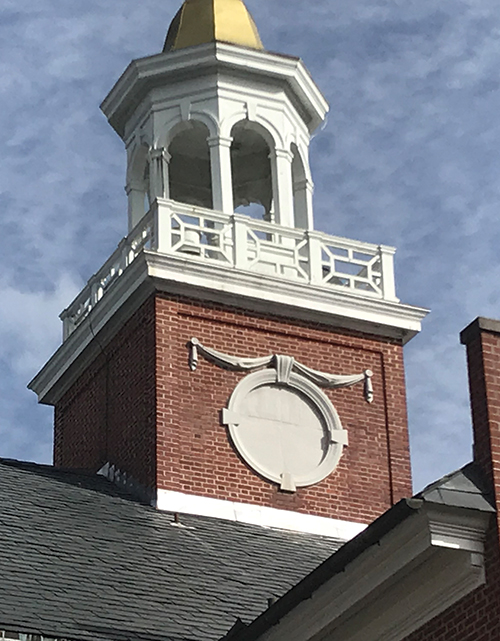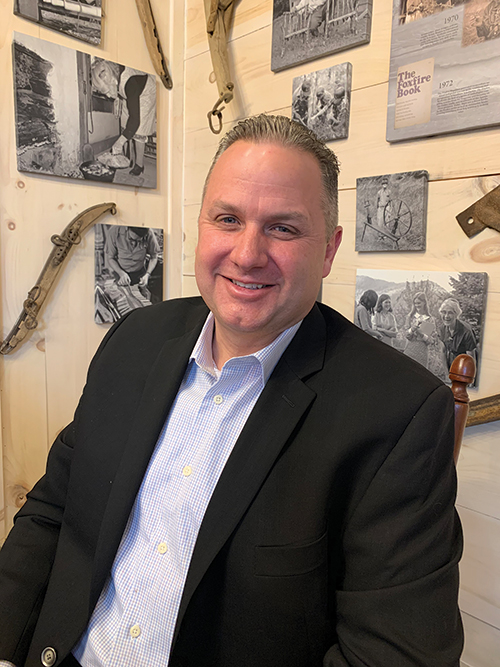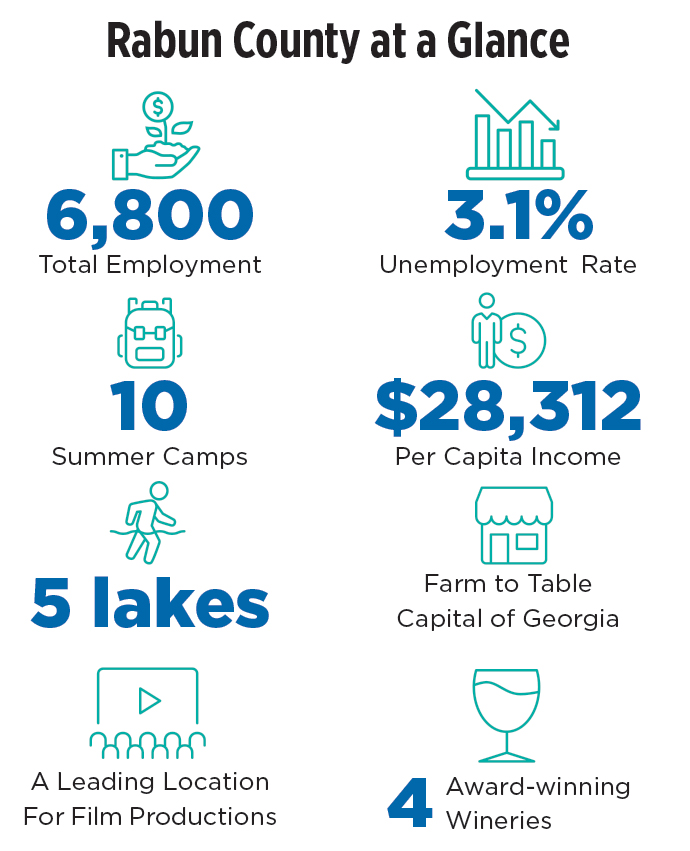You have to look a little harder for industry — other than tourism — in Rabun County, the northeastern-most Georgia County, bordering the two Carolinas. But it’s there. Better known for its lake houses, antique shops, restaurants, summer camps and prep schools, the county is home to companies in such diverse sectors as textiles, distribution and e-commerce, food processing and business services.
Forward Rabun is an economic development initiative now getting under way that seeks to recalibrate outside perceptions of the county to include its business location attributes. Private entities are joining forces with public agencies, including the County Commission and the Development Authority of Rabun County, to focus that effort. “Right now, the sky’s the limit in what we can do,” says Rick Story, executive director of the development authority, who has deep roots in Clayton, the county seat, and environs.

The county’s topography makes it difficult to attract auto-plant-sized projects. But developable space is available. One example is the 96-acre (39-hectare) Rabun Business Park, where a nearly 1-million-sq.-ft. (92,900-sq.-m.) Fruit of the Loom factory operated until the early 1990s. Pennsylvania-based ELK Group International purchased the building from the county in January, which it has converted to a distribution center — its eighth in the U.S. and second in Georgia. The other Peach State center is in Sylvania, near Savannah. ELK Group is a designer and importer of indoor and outdoor residential, designer and commercial lighting fixtures, accessories and furniture.
Imports, mainly from China, arrive at the Port of Charleston and are transported by rail to the South Carolina Inland Port in Greer, near Greenville. From there, the containers are trucked to the ELK Group facility where custom orders can be assembled for delivery to lighting and furniture showrooms, electrical wholesale distributors, department stores and home improvement centers.
A Perfect Fit
As it built out its distribution center network, ELK Group looked at everything from former manufacturing facilities to new construction, says Todd Webb, ELK’s chief operations officer. By 2017, it was time for a much larger footprint facility, and the search for the right location centered on sites east of the Mississippi River, where most of the company’s business is, in large part to replace a distribution center in the Memphis area that was not working financially and had ceilings that were too low.
After eliminating sites in the Carolinas, Tennessee and elsewhere in Georgia, the Rabun Business Park checked all the boxes, including plenty of room in which to expand in the future. Parkdale Mills, a nearby manufacturer of spun yarn, uses part of the facility to store inventory.

The key box to be checked was the location’s logistics assets. For a rural county, Rabun is very well-connected. Interstate 985 from Atlanta becomes a four-lane highway, U.S. 23 and 441, into North Carolina. The Atlanta, Asheville and Greenville-Spartanburg airports are less than two hours away. But it’s the inland port in Greer and the inland port in Gainesville, Georgia, just 40 minutes south of Clayton, that make the location so ideal. The Gainesville port should be operational in 2021. “We’d like to think we’re ahead of the curve in terms of the way Atlanta is growing, which is more northeast,” says Webb. “We felt there would be a lot more opportunities in this area. And the entry price was significant but reasonable compared to a million-square-foot building in a major metro area. And we wanted to be one of the employers in the area,” adds Webb, “not a me-too employer, and closer to Atlanta you start to hear those stories. We really appreciate where we are.”
ELK Group’s roughly 90 employees come in part from the northeast Atlanta suburbs. But it’s a much easier hour-or-so commute going northeast to Rabun County than it would be driving the same amount of time southwest into the thick of Atlanta traffic. That means ELK can find management-level and other employees from the Atlanta metro. Conversely, says Webb, “A lot of applicants are local because they used to have to go to the Atlanta area for these jobs. Now we’re in their own backyard. And we can draw from North Carolina and South Carolina and plants in Gainesville. We have a very loyal workforce and we’re loyal to them too.”


